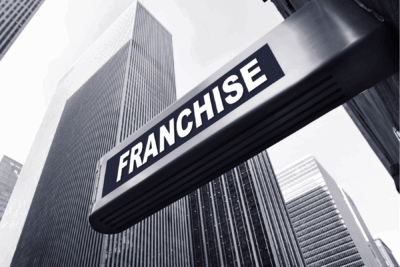What is a franchise, and how does it work? If you’ve ever considered opening your own business but were drawn to the name recognition and built-in systems of an established brand, you’re not alone. Franchising is one of the most popular business models in the United States for good reason. It blends entrepreneurship with the support of a proven system. But that structure also comes with strict rules, legal obligations, and financial commitments.
Whether you’re exploring ownership or considering franchising your own business, it’s critical to understand the foundation. Franchising isn’t just about brand names, it’s a legally binding relationship. That’s why it’s essential to explain franchising not just as a business model, but as a legal and financial commitment.
In this guide, we’ll answer the question, “What is a franchise?“, walk through franchise law basics, explain franchising structures, and introduce the Franchise Disclosure Document (FDD). We’ll also show how Cantrell Schuette’s attorneys support franchisees nationwide.

What Is a Franchise?
A franchise is a licensed business arrangement where an independent owner (the franchisee) is granted rights to operate under a larger brand’s name, systems, and support infrastructure. The franchisor provides trademarks, training, and operational protocols in exchange for fees and royalties.
Legally speaking, a business is a franchise if it meets three conditions defined by the Federal Trade Commission (FTC):
- The right to operate under a trademarked brand.
- Significant control or assistance by the franchisor.
- A fee of $500 or more is paid before or within six months of operations.
Understanding what is a franchise involves more than reading a definition. It means understanding your legal rights, your obligations, and your limits.
Types of franchises include:
- Business format franchises (e.g., fast food, gyms, cleaning services)
- Product distribution franchises (e.g., auto dealerships, soda distributors)
- Manufacturing franchises (e.g., bottling plants or food producers)
Many entrepreneurs don’t fully understand what is a franchise until they’ve taken the time to review the Franchise Disclosure Document (FDD) or speak with an attorney. That’s why it’s so important to explain franchising in clear, legally accurate terms from the very beginning.
Franchise Fees, Royalties, and the Business Model
Buying a franchise requires capital, and a firm understanding of the cost structure. These costs are often underestimated, and failure to budget accurately can derail your investment.
Typical expenses include:
- Initial Franchise Fee: Paid to secure your license and open your business.
- Ongoing Royalties: Typically a percentage of your gross revenue.
- Marketing Fees: Required contributions to brand-wide campaigns.
- Training & Travel: Often unpaid time, lodging, and transportation.
- Approved Vendors: You may be required to purchase from specific suppliers at marked-up rates.
All of these obligations are detailed in the FDD and enforced under franchise law. They’re not optional, and if you don’t plan for them, you may risk breaching your agreement.
The Franchise Disclosure Document (FDD)
The FDD is a federally required document that includes 23 key sections (called “items”). It gives you everything you need to evaluate a franchise opportunity.
Important items include:
- Item 3: Litigation history
- Item 7: Estimated investment breakdown
- Item 19: Financial performance claims (optional but helpful)
- Item 20: Franchisee turnover and closures
Under franchise law, the franchisor must give you the FDD at least 14 calendar days before you sign or pay anything. That’s your opportunity to ask, “What is a franchise, and what am I agreeing to?”
Cantrell Schuette helps clients interpret these documents line by line. We explain franchising from a legal standpoint to ensure you’re not blindsided by clauses or fees that hurt your investment down the road.
Understanding Franchise Law: Your Legal Framework
Franchise law exists to regulate fairness in the franchise relationship. At the federal level, the FTC Franchise Rule governs disclosure, advertising, and enforcement. At the state level, laws vary widely:
- Registration states (e.g., California, Minnesota) require pre-approval to offer or sell franchises.
- Non-registration states (e.g., Florida, Georgia) still enforce disclosure and anti-fraud protections.
Whether you’re buying in a regulated state or not, it’s essential to understand how franchise law defines your rights and protects your investment. Our team at Cantrell Schuette frequently explains franchising laws across jurisdictions to help clients understand what applies to them.
Franchisee Rights and Responsibilities
Franchisees gain benefits, but also take on significant responsibilities. Here’s a breakdown:
Your Rights:
- Honest disclosures through the FDD
- Access to operational support and branding
- Defined territory (if applicable)
- Legal protections under franchise law
Your Obligations:
- Follow the franchisor’s system and brand standards
- Pay royalties and marketing fees
- Submit operational data
- Maintain active communication
If your franchisor fails to meet obligations, or you’re penalized unfairly, franchise law may offer legal remedies. A lawyer can explain franchising conflict resolution options, including mediation, arbitration, or litigation.
Why You Need a Franchise Lawyer
Franchise agreements are long, dense, and one-sided. They’re written to protect the franchisor, not you. That’s why it’s crucial to work with a legal team that knows franchise law inside and out.
We help clients:
- Review the FDD and highlight risks
- Negotiate better contract terms
- Explain franchising details to stakeholders
- Handle disputes or breach allegations
- Create exit or resale strategies
You don’t need to navigate this alone. If you’ve ever asked, “What is a franchise and how can I protect myself?” we’re here to help.
How Cantrell Schuette Can Help
At Cantrell Schuette, we represent franchisees nationwide. Whether you’re entering your first agreement or growing into multiple territories, we bring legal clarity and practical advice.
Our services include:
- FDD review and contract review
- Franchise agreement negotiation
- State-specific franchise law guidance
- Dispute resolution and litigation
- Multi-unit compliance support
- Legal support for franchisee and dealer associations
We explain franchising in plain language so that you can make strategic, informed choices with confidence.
Protect Your Investment
Franchising can be a powerful way to grow your business, tap into an established brand, and access built-in support systems, but only if you approach it with the proper legal insight. Before signing any documents, it’s crucial to understand what constitutes a franchise, what to look for in a franchise agreement, how franchise law affects your rights and responsibilities, and the importance of clearly explaining franchising to yourself and future stakeholders. This isn’t just a business deal; it’s a long-term legal commitment that can either fuel your success or trap you in an unfavorable agreement.
Don’t sign blindly or assume the terms are standard. Every franchise agreement is different, and the delicate print matters. Contact our attorneys today to explain franchising in clear, actionable terms, protect your interests under franchise law, and ensure you’re entering a partnership that truly aligns with your goals. With the proper legal guidance, you can move forward with confidence, fully understanding what a franchise means for your rights, your investment, and your long-term success.



